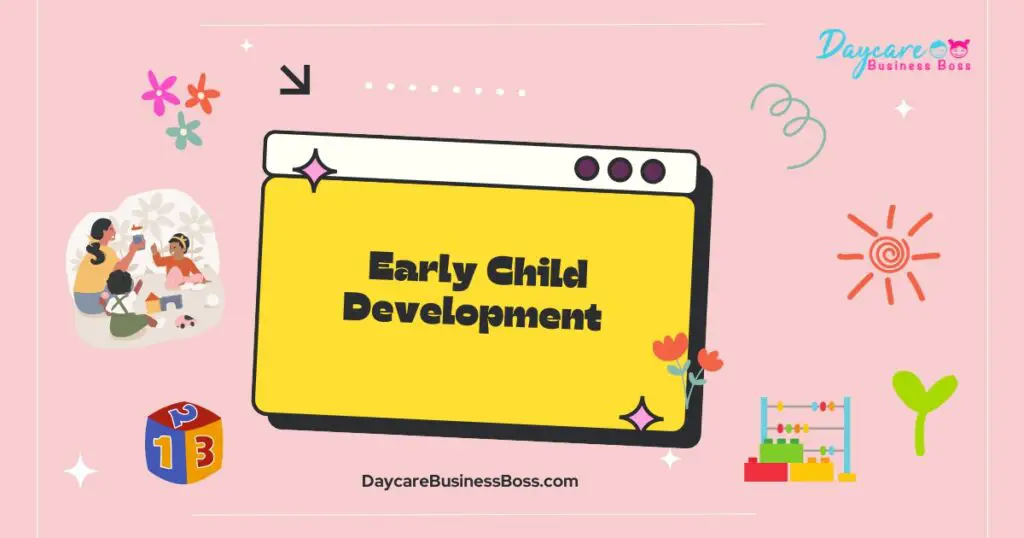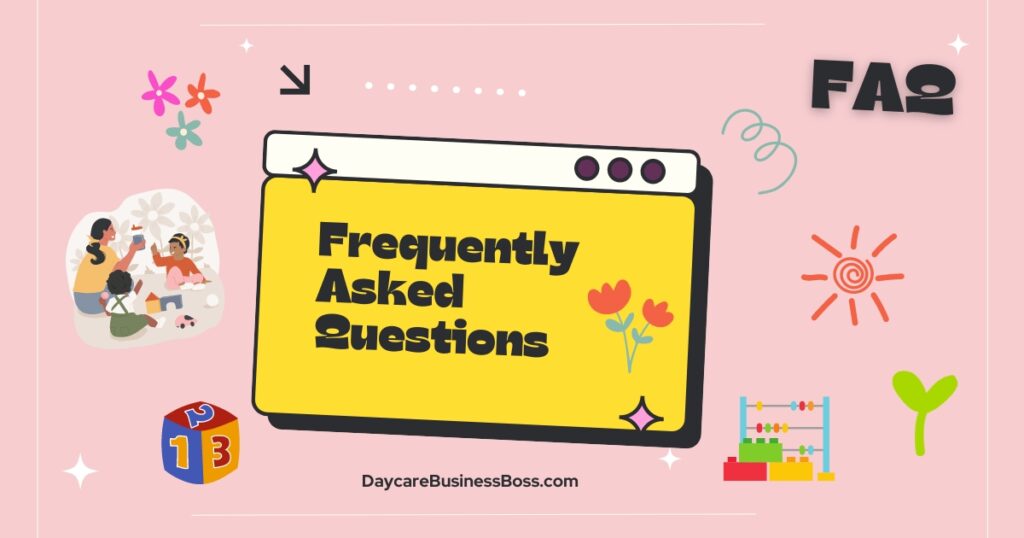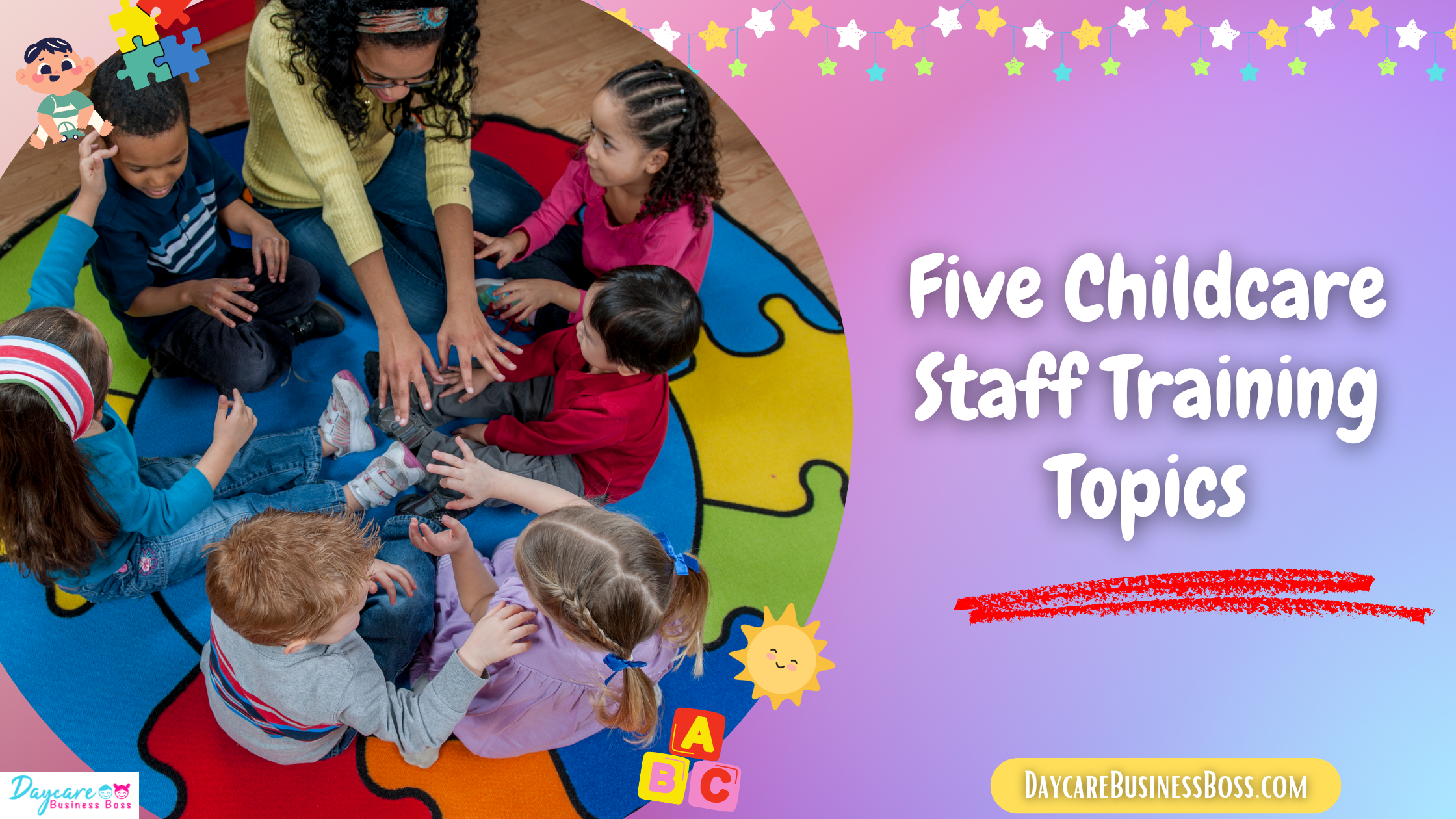Running a daycare center provides you with the opportunity to make a difference in the lives of children. However, running a daycare is an ongoing experience which will require you to evolve, adapt, and change to meet the many needs of the individual children in your care. Providing essential training and continued education to your staff is one way that you can stay up-to-date on your state’s rules and regulations regarding child care. It can also ensure that you are able to accommodate the needs of every child that enters your daycare. So, what are a few topics that every member of your staff should be trained on?
Here are five essential childcare topics on which you should ensure that each member of your staff is trained:
- Curriculum and environment
- Food nutrition, health, and safety
- Early child development
- Special needs and inclusion
- Discipline and guidance
In this article, I am going to take each of these topics and explain why they should be an essential part of your staff’s training. I will also provide you with a few recommendations on how you can train your staff in each of these categories, as well as shed some light on why training should be an ongoing and integral process in your daycare center.
Curriculum and Environment
Most daycares and preschools have a set curriculum that they follow. From time to time, state rules and regulations May dictate that this curriculum changes. As a daycare center director, it is imperative that you keep your employees knowledgeable of these changes. According to the Houston Chronicle, keeping your staff up-to-date on this training will not only improve their competency, but it will also create a standard knowledge base to which all employees must adhere.
Ensuring a quality learning environment should be the primary focus of your daycare center. According to Head Start, ECLKC, a daycare center employee is the most important part of a child’s early learning environment. It is your staff’s responsibility to provide these students with calm, nurturing,and predictable social and emotional environments. This is where providing continued training to your staff will help to bolster their knowledge, while also earning your daycare the reputation of being the most up-to-date center around.
Food nutrition, health, and safety
Unless your daycare center is a nonprofit organization, more than likely you provide at least two meals and a snack per day for the children in your care. Let’s face it. Children are going to get hungry, and it can be a challenge to provide them with a meal that is nutritious, delicious, and satisfying. Knowing what to feed your students is an essential part of caring for them, and your staff should be continually trained on nutrition, health, and safety. Keep in mind that knowing how to prepare these meals is just as important as knowing what to feed your students.
So, how do you know what to feed these children? Believe it or not, it’s more than a matter of simply throwing something together. The USDA has rules and regulations your center must follow regarding food nutrition, and it is up to you to ensure that your staff members are properly and thoroughly trained on these matters. You can find all of these rules and regulations regarding nutrition standards for daycares and schools at the Child and Adult Care Food Program website if you are looking for a good place to start.
Early Child Development

When parents send their children to your daycare, they are expecting you to be thoroughly trained in certain areas. One of the most important areas that parents will expect you to be trained in is early childhood development. Why is this important? According to Athena Career Academy, early childhood development has a significant impact on a child’s social and emotional well-being. One of the primary responsibilities of you and your staff is to assist children with their social and emotional coping skills, as well as forming relationship bonds. Learning experiences and emotional interactions also have an effect on early childhood development.
Another benefit of being trained in early childhood development is that your staff will be able to help parents identify potential learning difficulties and concerns early in their lives. Being able to spot these concerns at an early age will give parents a chance to get their children the help they need before it’s too late. Daycare staff members can also be trained to spot milestones that children should be achieving by a certain age. Having this knowledge will help caregivers to recognize whether or not children are achieving these milestones at an appropriate age. Being able to alert parents to early concerns may help to prevent larger problems in the future.
What are the best activities for a Montessori classroom?
Special Needs and Inclusion
Privately-run daycares centers must comply with Title III of The Americans with Disabilities Act, just like many other businesses such as movie theaters, recreation centers, restaurants, banks, and hotels. Title III applies to the “child care center’s interactions with the children, parents, guardians, and potential customers that it serves.” This act applies to any entity that provides childcare services such as daycare centers, home based daycare centers, Head Start programs, extended day school programs, and summer programs.
Because of the importance of the Americans with Disabilities Act, keeping your staff informed of the rules and regulations that it governs is not only smart, but it is also a necessity. Legal ramifications aside, continuing training pertaining to children with special needs will help to create a better experience for your staff, as well as the parents and children involved. Training your staff to include and involve children with special needs will provide everybody involved with a great daycare experience.
Discipline and Guidance
During the time that you are providing childcare services for your students, the issue of discipline will inevitably come to your attention. There are going to be times when the children under your care will try to test the boundaries you have set for them. Most daycare centers have a written document in place that outlines their policies regarding the different methods of discipline they use, as well as the methods of discipline they will not tolerate. An effective way to ensure that your staff has committed these policies to memory is to review this document with them from time to time.
When it comes to caring for children, guidance can be just as important as discipline. Positive reinforcement is one of many proven methods to help your students understand and complete goals and tasks you have set for them. Your staff should be educated on what your daycare deems to be acceptable and unacceptable behavior. Included in this training should be the opportunity to observe the children to identify “events, activities, interactions and other factors that predict and may contribute to challenging behavior,” per Quality Childcare Inc. Once you have identified these factors, you can train your staff on how to interact with children exhibiting these behaviors, instead of focusing on eliminating the behavior itself.
Conclusion
Most daycare centers train their staff members upon hiring them, but the best daycares subscribe to the philosophy of continuous education. As is the case with most things in life, situations in a daycare center may change daily. Properly training your staff to be up-to-date on changes in the rules and regulations that affect your business will better prepare them to adjust and deal with these changes. There are many topics on which you can offer training in your daycare center. However, these five topics are just a suggestion on the most common issues that are facing daycares today. Make sure that you and your staff keep up with your training, as it will help you to be better prepared for a bright future.
Related Questions

Is corporal punishment legal in daycare centers? Though some instances are still reported, corporal punishment is not permitted in schools or in childcare centers. The use of corporal punishment is considered to be a direct violation of the student’s constitutional right to humans dignity. Failure to comply with this law can result in severe financial and legal ramifications.
Do temporary illnesses count as disabilities in regards to the Americans With Disabilities Act? Although the Americans with Disabilities Act covers many different types of mental and physical conditions, temporary illnesses area not considered as disabilities. However, some illnesses may do have the potential to become permanent disabilities.
Please note: This blog post is for educational purposes only and does not constitute legal advice. Please consult a legal expert to address your specific needs.
To learn more on how to start your own daycare checkout my startup course and documents here.

Meet Shawn Chun: Entrepreneur and Childcare Business Fan.
I’m a happy individual who happens to be an entrepreneur. I have owned several types of businesses in my life from a coffee shop to an import and export business to an online review business plus a few more and now I create online daycare business resources for those interested in starting new ventures. It’s demanding work but I love it. I do it for those passionate about their business and their goals. That’s why when I meet a childcare business owner, I see myself. I know how hard the struggle is to retain clients, find good employees and keep the business growing all while trying to stay competitive.
That’s why I created Daycare Business Boss: I want to help childcare business owners like you build a thriving business that brings you endless joy and supports your ideal lifestyle.

